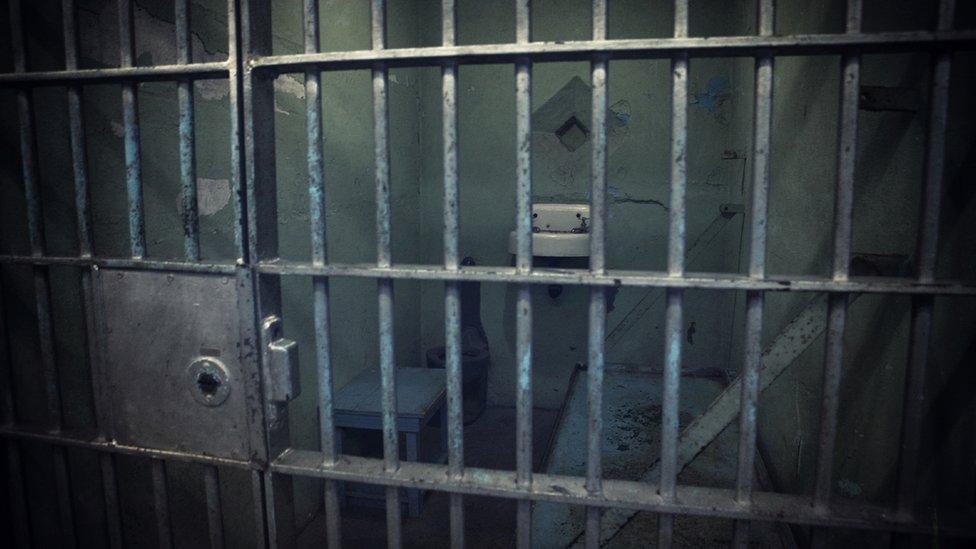US election 2020: Why it can be hard to vote in the US
- Published
Are US voters being suppressed in Georgia?
A fierce battle over who should vote and how has sparked hundreds of lawsuits and prompted accusations of voter suppression. So what are the barriers to voting and why do they exist?
Images of the long queues of early voters were both celebrated as a sign of enthusiasm and criticised as evidence of a creaking electoral system.
Queues, restrictive voting laws and limited access to polling stations all keep people from participating in the democratic process, says Andrea Hailey, the CEO of Vote.org, a non-partisan non-profit that aims to use technology to help people register to vote.
Some of those obstacles have been amplified by the pandemic, which has led to a nationwide shortage of poll workers and fewer in-person polling stations. "People are having to jump through an extra series of hoops just to participate," Ms Hailey warned.
In response to the obvious risks in getting large numbers of people to polling stations this year, many states eased up on voting restrictions. This meant more Americans can vote early, in person or by mail, than ever before. But not everyone is on board.
There are currently over 300 lawsuits in 44 states concerning how absentee votes are counted, who is allowed to vote early and how mail-in ballots are collected. Republican-run states say restrictions are necessary to clamp down on voter fraud, while Democrats say these are attempts to keep people from exercising their civic rights.
So what are the challenges facing people trying to vote?
10-hour waits
In Georgia, thousands of voters waited hours just to cast their ballot during early voting. Many attribute the long wait to voter enthusiasm, but other factors - like a limited number of polls, understaffing or computer glitches - have also been blamed.
It's not known how many people are put off from voting because of the queues. But it's clear who it inconveniences more.
A survey conducted by Massachusetts Institute of Technology found that black voters waited, on average, 16 minutes in line during the 2016 election, while white voters only waited 10 minutes. Other studies backed that up.
And long queues disproportionately affect wage workers, who don't get paid time off to vote.
Naked ballots and other strict rules
Policies like requiring voters to print out a form can dissuade younger or poorer voters, who are less likely to own a printer, from voting, says Ms Hailey.
In Pennsylvania, the state supreme court ruled that ballots mailed in without a secrecy envelope hiding the identity of the voter would be declared invalid. This decision, issued so shortly before the election, caused concern that significant numbers of "naked ballots" would be thrown away.
Before coronavirus, many states required you to have your mail-in ballot signed by a notary or witnesses. Since the pandemic, many of those states have eased restrictions - but a handful still remain.
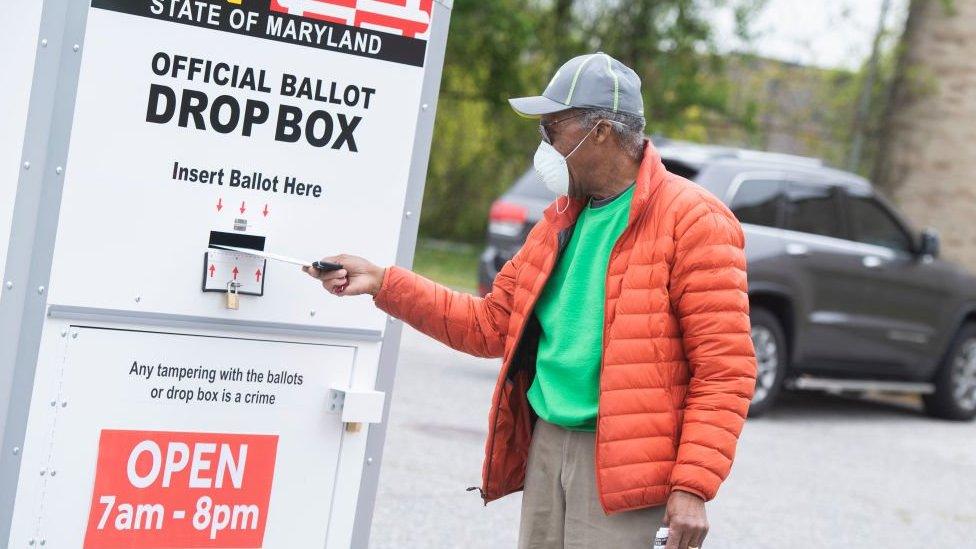
Long drives
In rural parts of America, voters may have to drive for hours to reach an in-person polling station.
Four Directions, a Native American voting rights advocacy group, says that many Native Americans living on reservations have limited access to voting.
In Nevada, for instance, members of the Pyramid Lake Paiutes must drive almost 100 miles (160km) round trip to get to the closest early voting location.
In Arizona, a lawsuit filed by members of the Navajo Nation asked for extra time to get postal votes in, because there is just one post office every 707 square miles.
ID laws
Once people get through the line, they may have to prove they are who they say they are.
In 35 states, voters must show some sort of ID at the poll. While some allow a written affidavit if an ID is missing, a handful of states, namely Wisconsin, Texas, Kansas, Indiana, Tennessee, Missouri and Georgia, do not.
Supporters of voter ID laws, like Wisconsin's ex-governor Scott Walker, who passed one of the country's strictest voter-ID laws in 2016, say they make it "easy to vote but hard to cheat".


But others say fears of in-person voter fraud are overblown, and should not outweigh the harms caused by disenfranchising the poor, homeless, or disabled voters, who may not drive or have a permanent address.
Voter ID laws have emerged in the last decade as part of a wider push by Republican legislatures, ostensibly with the aim of curbing voter fraud, says University of Wisconsin-Madison professor Kenneth Mayer. But he says the laws' real aim is to keep voters who are more likely to vote Democrat - like the young, poor or African-Americans - at home.
"It's a common trope that everybody has an ID. You need an ID to get on an airplane… to open a bank account. But there are people who don't have bank accounts, who don't fly," he says.
The US is not the only country to have voter-ID laws - the UK has piloted new laws in local elections and this year a British court upheld them, paving the way for them to be enacted nationwide.
In the US, no evidence of widespread voter fraud has emerged. A commission launched by the Trump administration to look into the 2016 election was disbanded without publishing a report.
The White House said at the time that many US states had refused to co-operate.
Roll purges
In the US, local counties administer the elections - and each county or state has its own rules and regulations. Some regularly purge voters names from lists of registered voters, which mean voters need to register all over again.
There is a case before Wisconsin's top court that could strike 130,000 names off the voter list. A conservative law firm had sued the state because the election commission did not immediately remove people from the list who had not responded within 30 days to a letter identifying them as someone who may have moved.
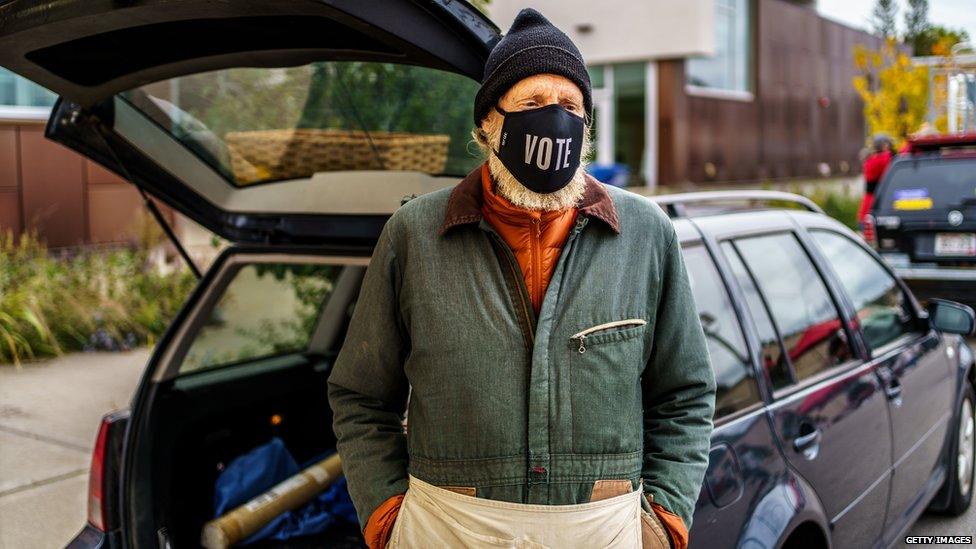
An apple vendor wears a facemask reading "vote" at a farmers market in Wisconsin, where there is currently a legal battle over 130,000 names on the voter roll
The battle is split along partisan lines in a state that narrowly supported Trump in the 2016 election. Republicans say the commission failed to uphold the law by letting people stay on the rolls, while Democrats say the law disproportionately affects young, poor and minority voters who may not have stable housing.
Prison voting bans
Most states also restrict the voting rights of felons - criminals who have been convicted of more serious crimes and sentenced to prison. Some states automatically restore voting rights after the sentence is served, while others wait until after probation and parole is served, and after all fines have been paid.
In 2018, Florida restored the voting rights of 1.5m non-violent felons. Soon after, the state amended the law to say that felons must prove they have paid all fines and fees before they vote.
Former New York City Mayor Mike Bloomberg - who briefly ran for the Democratic presidential nomination - donated $16m (£12.3m) to help pay the fines and fees of 32,000 black and Hispanic former felons.
His donation prompted the state's Republican attorney general to ask the FBI to investigate it for "potential violations of election law".
A dark history
Voter suppression is nothing new in America - in fact, it has been a part of the nation since the very first elections, when only white, land-owning men over 21 were allowed to vote.
After the Civil War, when African Americans were given the right to vote, things like poll taxes and literacy tests were used to make it harder for them.
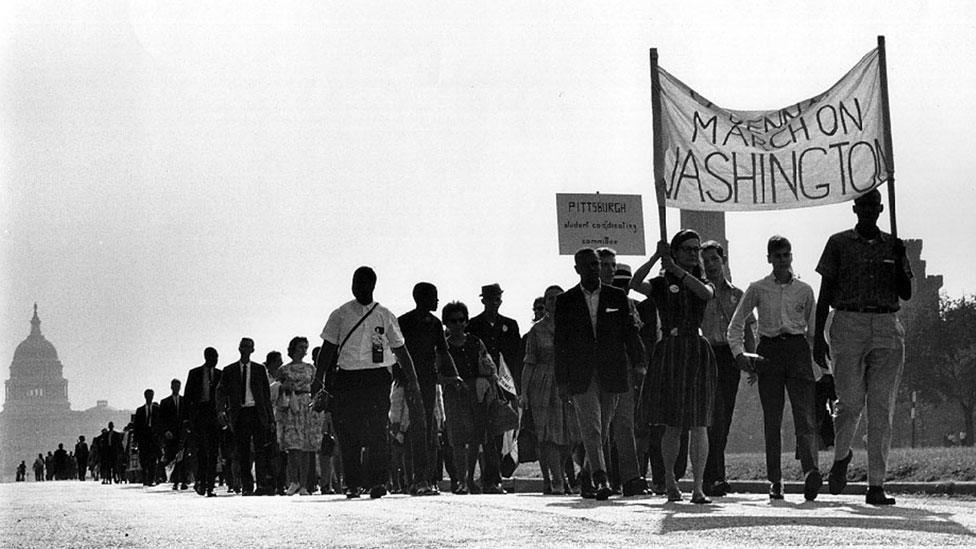
All that changed in 1965, when the Voting Rights Act was passed, outlawing many of those practices and requiring certain states, mostly in the South, to receive federal preclearance before changing elections laws.
In 2013, the section of the act that singled out certain states for federal oversight was overturned by the Supreme Court, which made it easier for those states to pass restrictive voting measures.
- Published6 November 2020
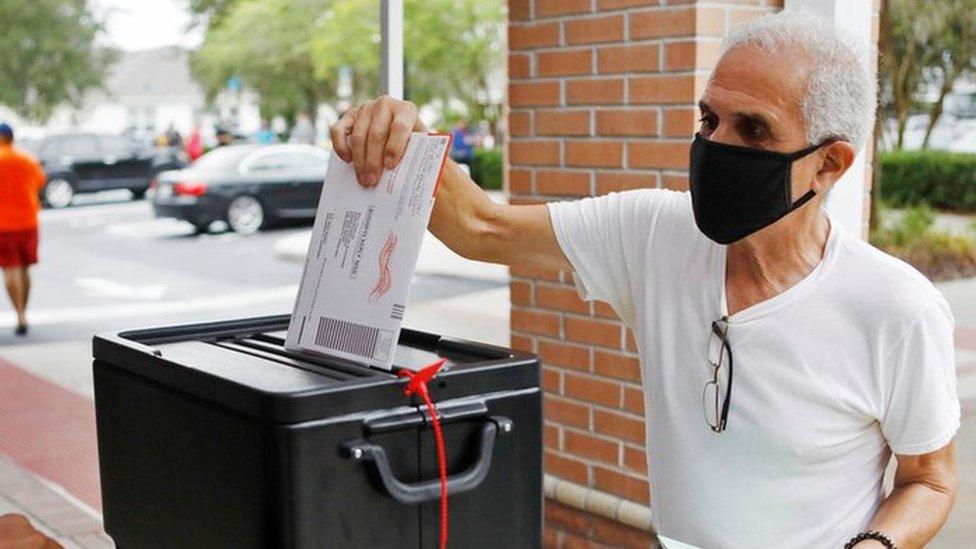
- Published1 November 2018
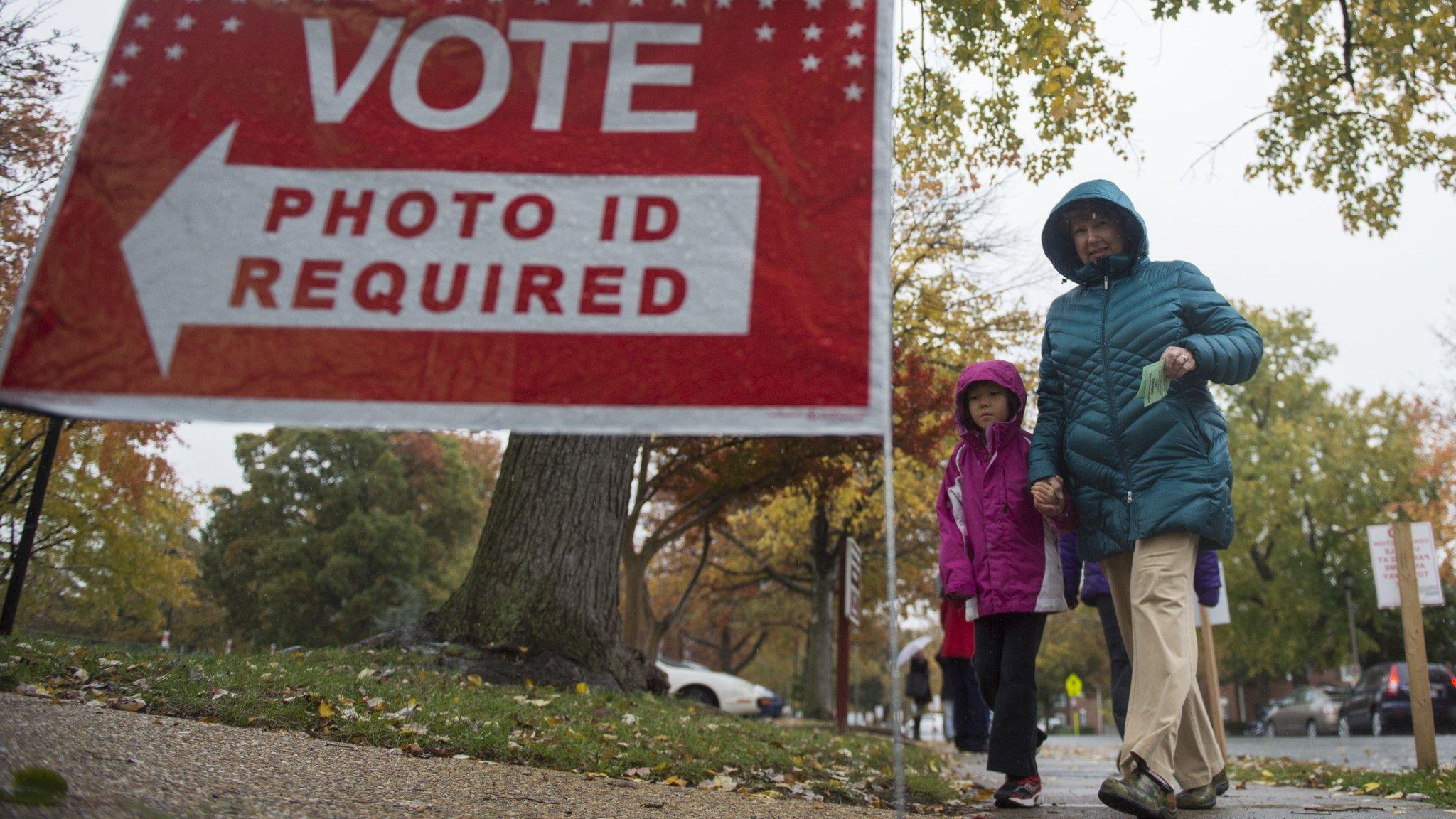
- Published13 December 2019
